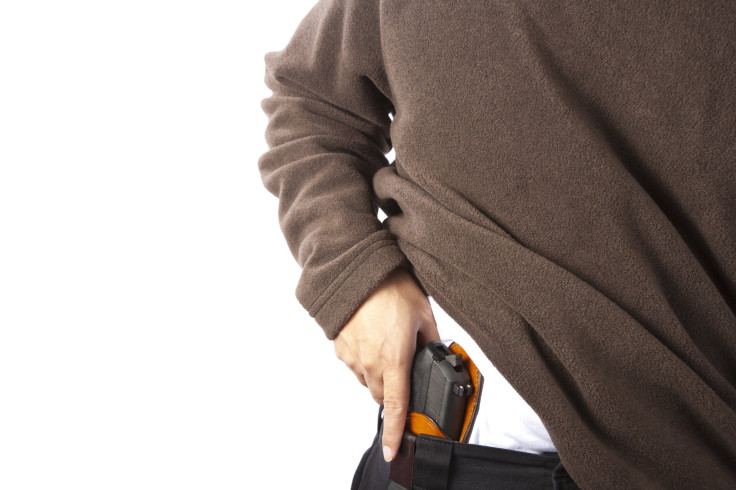80% Of The Time, Doctors Sign Off On Concealed Weapon Permits For Patients, Despite Uncertainty

According to a new survey conducted by North Carolina doctors, more and more physicians are worried about assessing their patients to determine their competency in carrying concealed weapons.
The requests for doctors to assess people's mental and physical health to determine ability to carry guns have been increasing, the survey found. And doctors often feel as though they’re not qualified to make the decision whether to deem an individual mentally, emotionally, and physically competent to carry a concealed gun in public.
“This is not a small problem,” Dr. Adam Goldstein, author of the study and a professor in the Department of Family Medicine at the University of North Carolina School, said in a press release. “More than 20 percent of the physicians we surveyed have been asked to sign competency permits for concealed weapons, and a majority of them do not feel they can adequately assess the physical or mental competence of their patients to safely have a concealed weapons permit.”
The survey discovered that physicians who signed concealed weapon permits allowed patients to use guns 80 percent of the time, despite their uncertainty. The survey was sent out to 600 physicians registered with the North Carolina Medical Board, and 225 of them were returned. “If physicians do not feel that they can adequately assess their patients’ competence yet are still giving approval for concealed-weapon permits, then there is something wrong with the system,” second year medical student John Pierson, another author of the study, said in the press release.
Every state has its own rules about permitting individuals access to concealed weapons. Some states will allow people to carry weapons only if they pass approval processes. Certain local law enforcement officers require applicants to provide the name of a physician who can attest to their physical or mental health. But these physicians aren’t properly trained to make such decisions, and it raises ethical questions: Should doctors report or withhold information about a patient’s childhood? It also raises questions in terms of liability: If a doctor signs off on a request, and their patient injures or kills someone using the gun, should the doctor be partly to blame?
Goldstein wrote a perspective in the New England Journal of Medicine addressing the issue last year, in which he notes:
[S]ince 2005, more than 150 people who received permits to carry concealed weapons in Michigan have committed suicide. In North Carolina, over a five-year period, more than 2,400 permit holders were convicted of crimes, including 900 drunk-driving offenses and more than 200 felonies. Given the number of patients with at least one condition that might affect their physical or mental function, it's difficult to see how physicians can assess safety in the absence of comprehensive standards.
Goldstein and fellow authors believe that a person specifically trained to assess individuals in terms of concealed weapon competency should be used, rather than physicians, in making such sign-offs.
“There are things we can do now to change this,” Dr. Kathy Barnhouse, a professor of Family Medicine at UNC, said in the press release. “We discovered that the great majority of physicians feel that assessments for concealed weapons permits should best be done by providers specifically trained in making such assessments, presumably with standards to make assessments about mental and physical competence.”
Published by Medicaldaily.com



























